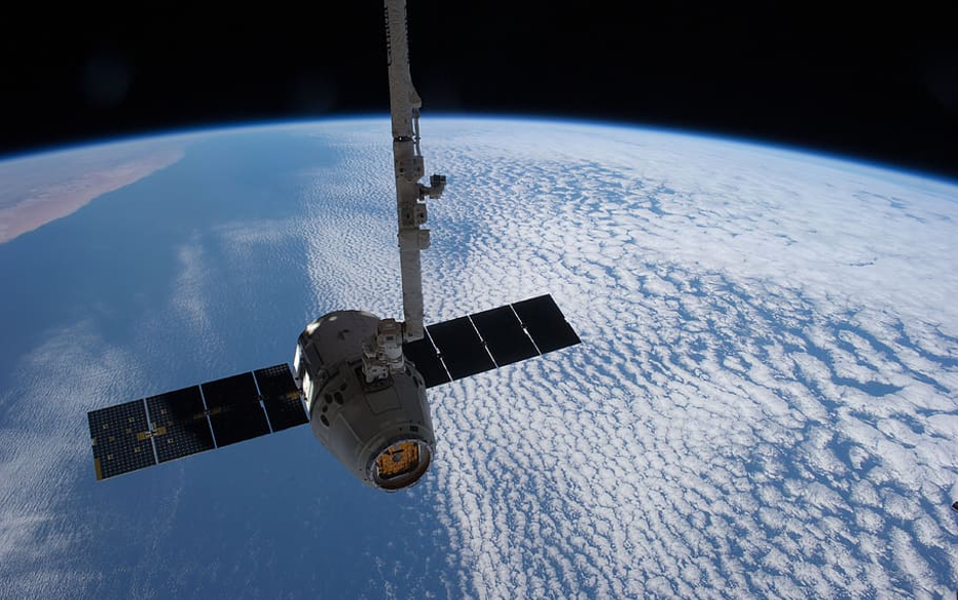
The Space Economy is on a trajectory to reach $1.8 trillion by 2035, marking a substantial leap from $630 billion in 2023. This growth, averaging 9% annually, outpaces the global GDP. This projection is the result of extensive research by the World Economic Forum (WEF) and McKinsey & Company, which involved over 60 experts from various sectors worldwide.
Published in April, their report underscores the swift transformation of the space economy from a niche industry to a ubiquitous force. The growth, the report says, isn’t confined to traditional space-related sectors. It extends across numerous industries, influencing everything from daily weather forecasts to food delivery and communication services.
WEF concludes that stakeholders across the board must get involved and build a dialogue about the economic, humanitarian, and geopolitical dimensions of space.
To facilitate dialogue on space diplomacy, C5 Capital has partnered with Meridian in hosting a Global Space Diplomacy Forum on 29 and 30 April in Washington, DC.
“Like the internet in its early days, the space industry is standing at an inflection point.”
Key findings from the WEF/McKinsey report indicate that space will increasingly integrate with terrestrial industries.
“It’s about more than rocket science, with space increasingly playing a role in everything from the weather forecast you look at it the morning, to the dinner that gets delivered to your door, and the call you make from your smart watch. Indeed, industries like supply chain and transportation are only going to become more dependent on satellite and other space technologies.”
Five industries are expected to drive over 60% of the space economy’s growth by 2035.
They are:
- Supply chain and transportation
- Food and beverage
- State-sponsored defence
- Retail, Consumer goods and lifestyle
- Digital Communications
Additionally, space investments promise returns beyond financial gains, with space technologies contributing significantly to addressing global challenges like disaster management, climate monitoring, and humanitarian response.
“Collaboration between public and private players will be key to ensure that space capabilities reach this potential.”
The space economy’s transformation will be driven by a combination of public and private sector investments. While public sector initiatives are expanding globally, private sector innovations, such as in-orbit services and space tourism, are also driving growth, the report says.
What is fuelling the space economy?
Technological advancements and reduced launch costs are further fuelling the space economy. The number of satellites launched per year has grown at a cumulative annual rate of above 50% from 2019 to 2023. Launch costs have fallen 10-fold over the last 20 years and the lower coasts enabled more launches.
The price of data, which is a key to connectivity, is also expected to drop by 10% by 2034, as demand increase by 60%, the reported noted.
Private sector investment in the space industry have reached all-time highs of more than $70 billion in 2021 and 2022.
“Space-enabled activities and applications are also becoming more diverse, with applications like space tourism no longer sounding like something out of a science fiction movie,” the report says.
Furthermore, space’s impact extends beyond its own domain, influencing various aspects of daily life and inspiring excitement and interest globally.
Humankind has not stepped on the moon for 50 years, yet space makes the news every day.
The widespread fascination with the solar eclipse witnessed by millions of North Americans on April 8th underscores humanity’s enduring captivation with remarkable astronomical phenomena. Similarly, milestones in space exploration, such as achievements in reaching new celestial heights, evoke a similar sense of wonder. Despite the passage of 50 years since humans last set foot on the moon, the allure of space exploration remains undiminished, continually captivating the public’s imagination.
WEF and McKinsey says incumbents and new entrants from across sectors should be poised to leverage the economic, social and geopolitical benefits as space-based or enabled technologies become increasingly prevalent in everyday life.
While the trajectory of the space economy is promising, its future growth depends on factors like improved access to space date, reduced entry costs, and continued innovation.
The report says understanding and leveraging the full potential of space can position both public and private industry players as leaders in the emerging space economy, unlocking long-term benefits for society as a whole.
With all the excitement about rapid growth and the solutions that the space industry unlocks, the WEF report concludes that stakeholders across the board must get involved and build a dialogue about the economic, humanitarian, and geopolitical dimensions of space.
Opportunity for Space Cooperation: Meridian Space Diplomacy Forum on 29 and 30 April in Washington
Avenues for cooperation and coordination to bring together a growing constellation of – new and old, government and commercial – global space actors will be explored at the Meridian Space Diplomacy Forum in Washington, DC on 29 and 30 April. Meridian is a 64-year-old nonpartisan diplomacy non-profit organisation that strengthens engagement between the United States and the world by developing global leaders.

How to sustain the Space Industry Take-off
The World Economic Forum’s report emphasises that all participants within the space industry have the potential to propel the space economy forward. Stakeholders from various sectors can play a crucial role in fostering “standardization and harmonization, accessibility and usability, and awareness and education.” Collaboration among these stakeholders will be essential in driving down costs throughout the space value chain.
The report underscores the importance of ensuring the accessibility and usability of space applications to encourage the proliferation of space-enabled initiatives. Furthermore, it advocates for increased awareness and education to facilitate widespread adoption across industries and regions.
Read the full World Economic Forum Report here:

















































































































































































